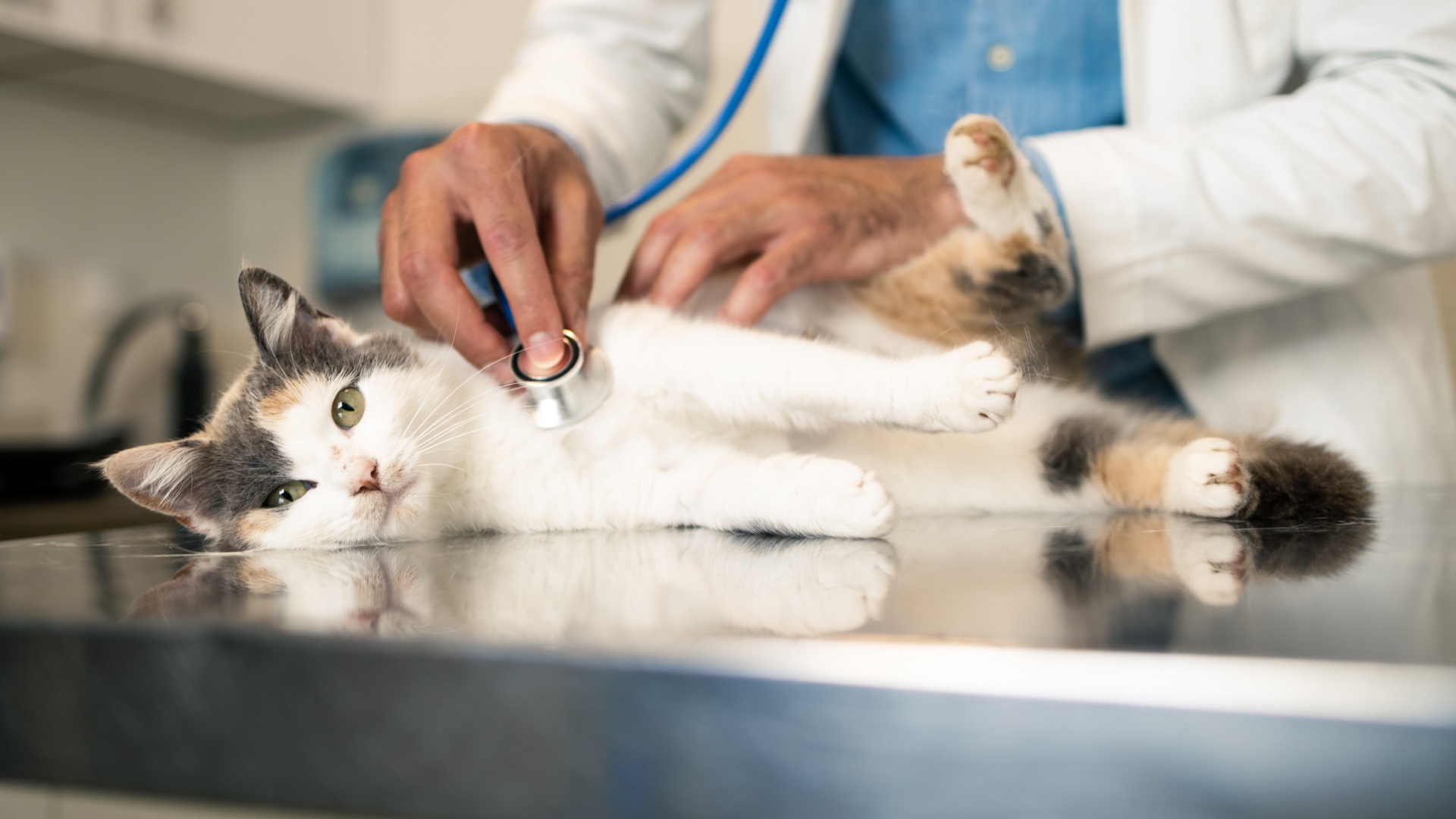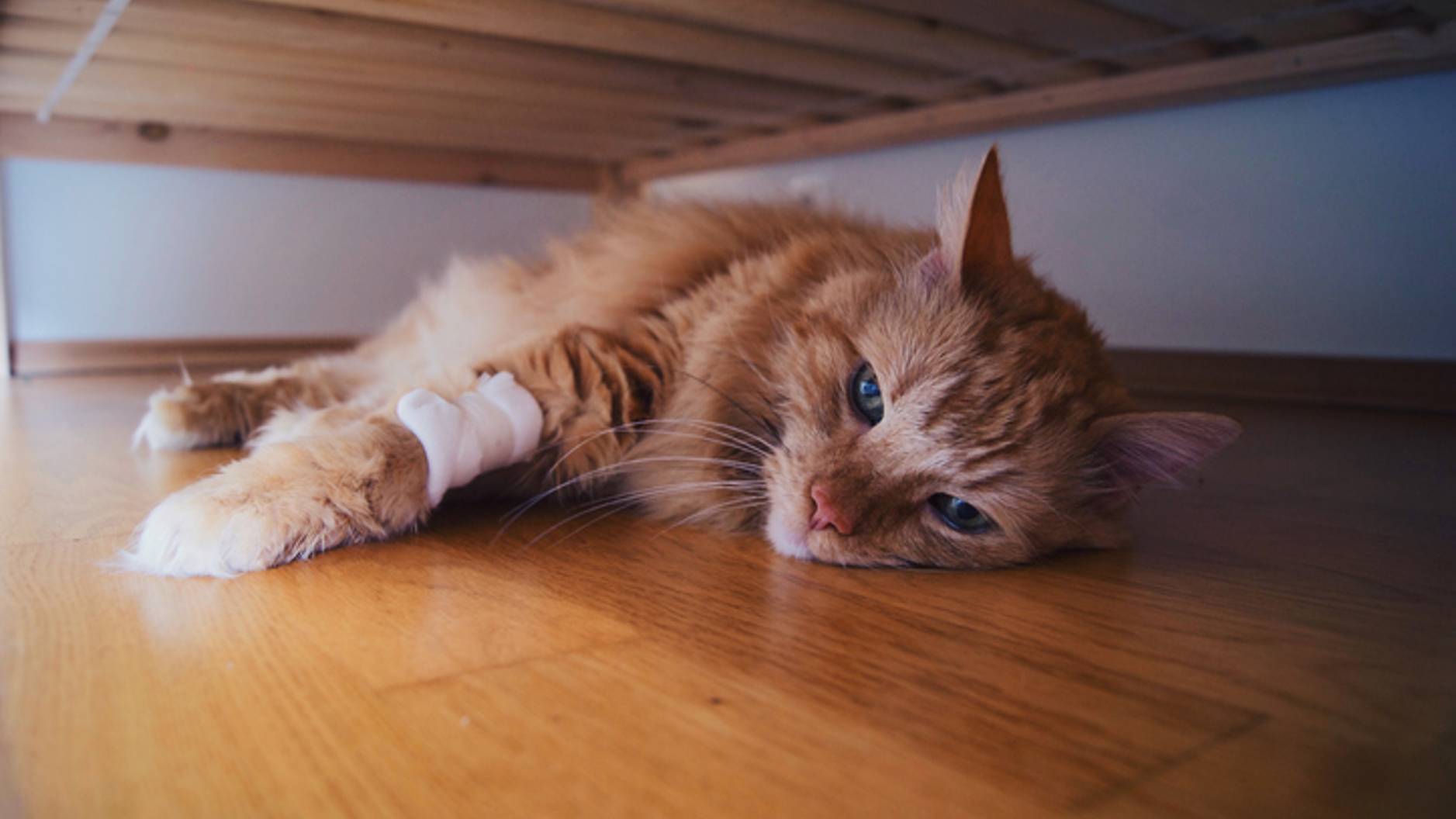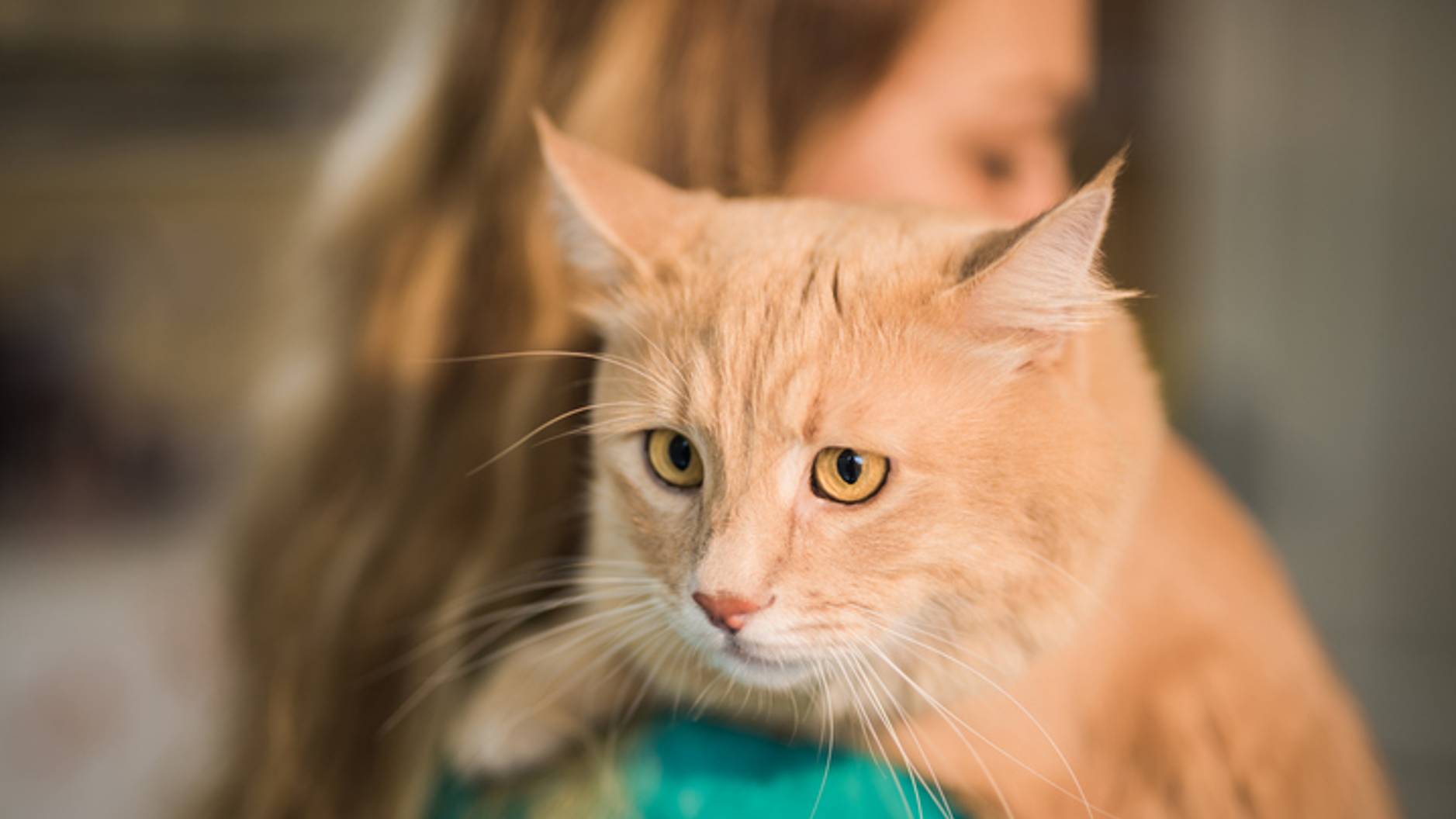Why is my cat throwing up white foam? We spoke to a vet to find out
Cat throwing up white foam? Here's everything you need to know...

Get the best advice, tips and top tech for your beloved Pets
You are now subscribed
Your newsletter sign-up was successful
Is your cat throwing up white foam? If so, it’s understandable that you’re concerned. Vomiting can be common amongst some cats, particularly those who inhale their food or those who have long coats and produce a lot of fur balls. While one single episode of vomiting isn’t usually a cause for concern, frequent vomiting is something that needs checking.
Firstly, it’s important to note that there’s a difference between a cat throwing up food after eating and a cat throwing up white foamy-type vomit. Being sick after they’ve gobbled down a bowl of the best cat food is often a sign that a kitty has eaten too quickly, whereas vomiting white foam on an empty stomach indicates there’s something else going on.
You may be wondering what to do if your cat is throwing up white foam, so we turned to expert vet Dr. Catherine Barnette to get some answers. Below, she explains what causes cats to vomit white foam, when you should be concerned and how your vet will go about diagnosing the cause. Let’s take a look…
Why is my cat throwing up white foam?
White, foamy vomit is common when a cat vomits on an empty stomach. Your cat’s stomach contains a small amount of fluid and mucus between meals, and this fluid and mucus results in white, foamy vomit. Although white, foamy vomit isn’t unusual, it’s still important to get to the bottom of why your cat is vomiting in the first place.
There are many possible causes of vomiting in cats. Isolated episodes of vomiting do not always have an identifiable cause, while consistent or recurrent vomiting is more likely to reflect an underlying disease.
Potential causes of vomiting in cats include:
- Dietary indiscretion (eating “people food,” getting into the trash, etc.)
- Intestinal parasites (hookworms, roundworms, coccidia, etc.)
- Inflammatory bowel disease
- Food allergy
- Gastrointestinal infection (bacterial or viral)
- Intestinal cancer
- Foreign body obstruction
- Hairball obstruction
- Drug reaction
- Pancreatitis in cats
- Heartworm disease
- Hyperthyroidism (overproduction of thyroid hormone)
- Kidney failure
- Liver disease
When should you be concerned about your cat throwing up white foam?

A single episode of vomiting isn’t necessarily serious, as long as your cat is eating well and acting otherwise normally. After a single, isolated episode of vomiting that is not accompanied by any other clinical signs, you can probably hold off on calling your vet. Monitor your cat closely, ensuring that there are no further episodes of vomiting or other signs of illness.
Get the best advice, tips and top tech for your beloved Pets
If your cat’s vomiting persists for longer than 24 hours, or if you notice other signs of illness (such as diarrhea in cats, lethargy, or your cat not eating), your feline friend needs to be evaluated by a vet.
There are many potential causes of vomiting in cats. Trying to figure out the cause of your cat’s vomiting by yourself, or through internet research, is likely to be an exercise in futility. A physical examination and laboratory tests are usually needed to determine the cause of a cat’s vomiting.
In addition to arriving at a diagnosis, your vet can treat potential complications of vomiting. Repeated vomiting can lead to dehydration in cats, requiring fluid therapy for rehydration. Additionally, vomiting cats can develop hepatic lipidosis (fatty liver disease) if they do not eat adequate amounts of food. Your vet can assess your cat’s hydration, determine whether fluid therapy is needed, and address your cat’s vomiting to prevent further fluid loss and reduce the risk of hepatic lipidosis.
Can I treat my cat’s vomiting at home?
There are no over-the-counter treatments that can be given at home to prevent or treat feline vomiting. Many human medications are toxic to cats, which can result in problems that are even worse than the vomiting that you are trying to treat. Resist the temptation to use home remedies. Instead, involve your vet and follow their recommendations.
Diagnosing the cause of vomiting in cats

Your vet will begin by performing a thorough physical examination of your cat. They will check your cat’s hydration status, listen to your cat’s heart and lungs, palpate your cat’s abdomen for any internal abnormalities (masses and intestinal obstructions can sometimes be found on abdominal palpation), and perform a complete nose-to-tail examination.
Based on these physical exam findings, your vet will recommend appropriate diagnostic testing for your cat. Initial testing may include blood tests, fecal parasite testing, urine testing, and/or abdominal radiographs (x-rays). If these screening tests do not provide a diagnosis, your vet may recommend more targeted testing.
Advanced testing for vomiting may include an abdominal ultrasound, a hypoallergenic diet trial (to rule out food allergies), or surgical biopsies of your cat’s intestines to look for cancer and inflammatory bowel disease.
Determining the cause of vomiting often requires multiple rounds of testing, but this is essential to determine the best treatment plan for your cat. You may be referred to a veterinary specialist for portions of this diagnostic workup, depending on what testing your cat needs.
Treating vomiting in cats
If your cat has an isolated episode of vomiting with no apparent underlying disease, your vet may administer an anti-nausea medication (in oral or injectable form) to settle your cat’s stomach. You may also be sent home with a short course of a bland, prescription diet, which is easily digestible and will provide rest for your cat’s gastrointestinal tract. In some cases, symptomatic care is all that is needed to get a cat over an upset stomach.
In more severe cases, involving ongoing or severe vomiting, your cat may require hospitalization. This will allow your vet to administer intravenous fluids and injectable medications, while closely monitoring your cat. Hospitalization can be used to rehydrate your cat and get vomiting under control; once your cat is stable, they can come home with you for ongoing outpatient care.
Work with your vet
If you witness your cat throwing up white foam, consider whether this is an isolated or recurrent issue. A single episode of vomiting can occur for any number of reasons, and may not always require veterinary care if your cat is otherwise acting normal.
However, repeated episodes of vomiting, or vomiting accompanied by other signs of illness, warrants a veterinary visit. Work with your vet to determine the cause of your cat’s vomiting, as well as the best treatment.
For more kitty-related health content, be sure to check out our guides to 'do anti-vomit cat bowls work?' and 'common allergies in cats'.
Dr. Barnette is a graduate of the University of Florida, where she received both her B.S. in Zoology and her Doctor of Veterinary Medicine (DVM). She has 15 years of clinical experience as a small animal veterinarian, treating dogs, cats, and occasional exotic patients. She now works as a freelance veterinary writer, creating educational content for veterinarians, veterinary team members, and dedicated pet owners. Dr. Barnette lives in southwest Florida with her husband and daughter (plus two cats, a dog, and a rescued dove!) and enjoys kayaking, biking, and hiking. Learn more about Dr. Barnette at www.linkedin.com/in/catherinebarnette.

